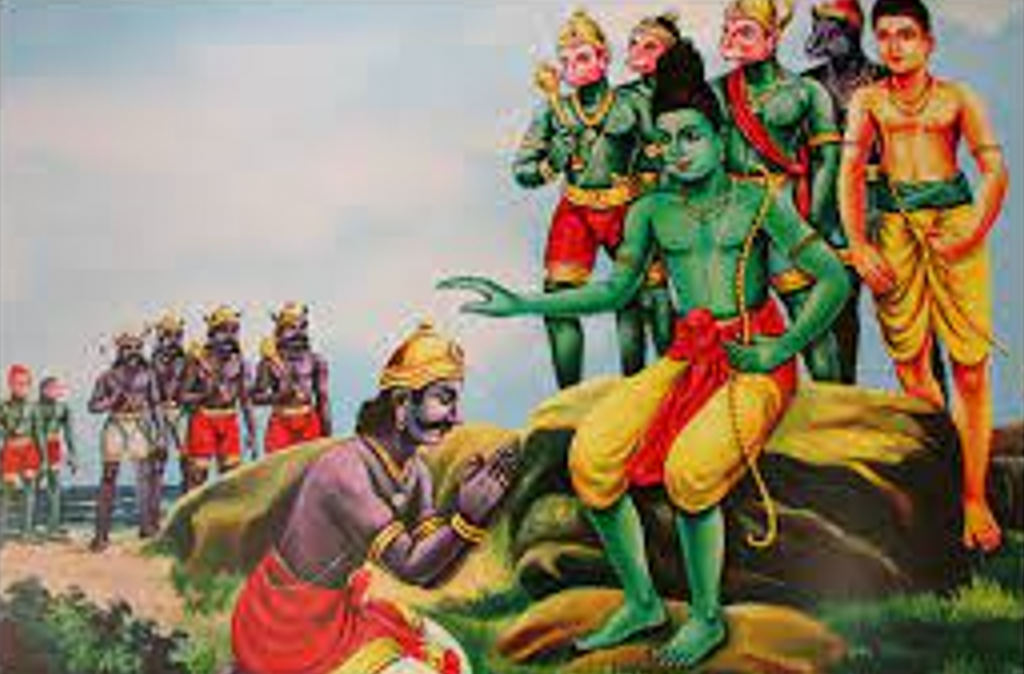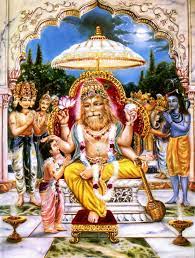06 November 2021, Plava varusha, Aippasi-20, Saturday;





In slokas 4 to 6, Swami Desikan emphasizes the importance of prapatti. He reiterates that Sriman Narayana is the only one who can bestow the ultimate that can be asked for — moksham, and all the other devatas can bestow only lesser fruits. Those who have realized this truth do not resort to the worship of anya devatas, but perform prapatti at the feet of Bhagavan and devote the rest of their life to His kainkaryam. Also, He is the only one who can protect us, and if He does not want to protect us, no other devata can protect us (bhayam kutah syAt tvayi sAnukampe, rakshA kutah syAt tvayi jAtaroshe). This again is one more reason for prapatti at the feet of Lord Narayana alone. None of the efforts that we may undertake, such as worshipping the anya devatas, will be of any use if He does not offer His protection. If He decides to protect us, with Periya Piratti (Mahalakshmi) standing in support of us by His side constantly, it does not matter what other efforts we undertake (tvayi pravuRtte mama kim prayAsaih, tvayyapravRtte mama kim prayAsaih). Thus He is the only upAya, and there is no other upAya for moksha.

As Swami Desikan has pointed out in several other stotras, he points out again in this stotra the relative difficulty of undertaking bhakti-yoga for attaining moksha and getting it to completion in this lifetime and the Lord being on the side of those who choose Prapatthi over Bhakthi Yogam as Upaayam and preventing them from feeling ashamed about their inability to execute the difficult-to-practice Bhakthi Yogam (“SamAdhi bhangEshu sampathsu api, SaraNyabhUthE Thvayi Baddha kakshyE, akinchana: aham dhUra adhirOham patanam cha sOdum apathrapE”). He strongly recommends that prapatti-mArga is the path to choose for us, who can not observe the stringent requirements of the bhakti-yoga (He obviously considers himself in this category; so we know where we stand !) … SlOkam 7.

The Key words in these slOkams are : “Thvath daasya hEthO: Thvayi nyastha AathmanAm bhAram Bhibharshi” (You bear the responsibility of protecting those who wish to perform Kaimkaryams to You) … SlOkam 4
“abheethi hEthO: Thvath anyam anuvartaneeyam na vibhavayAmi” (adiyEn will not consider anyone other than You appropriate to approach for removal of my samsAric fear)….SlOkam 5
“Thvayi saanukampE bhayam kutha: syAth ? Thvayi jAtha rOshE rakshA kutha: syAth?” (When You are compassionate towards me, where is the chance for fear to arise ? When You are angry at me, who can dare to protect me ?)….SlOkam 5

“ThvadhEka tantram Maam Thvam svEna yEva rakshithum arahsi” (adiyEn is totally under Your control, therefore, You have the rights to protect me by Yourself). “Thvayi pravrutthE mama prayAsai: kim? Thvayi apravrutthE mama prayAsai kim?” (When You come forward to protect me, where is the need for me to make any efforts to protect myself ? When You decide not to protect me, what is the use of my efforts in this regard ?)….SlOkam 6.

Courtesy: Oppiliappan koil Sri.V.Sadagopachariar








